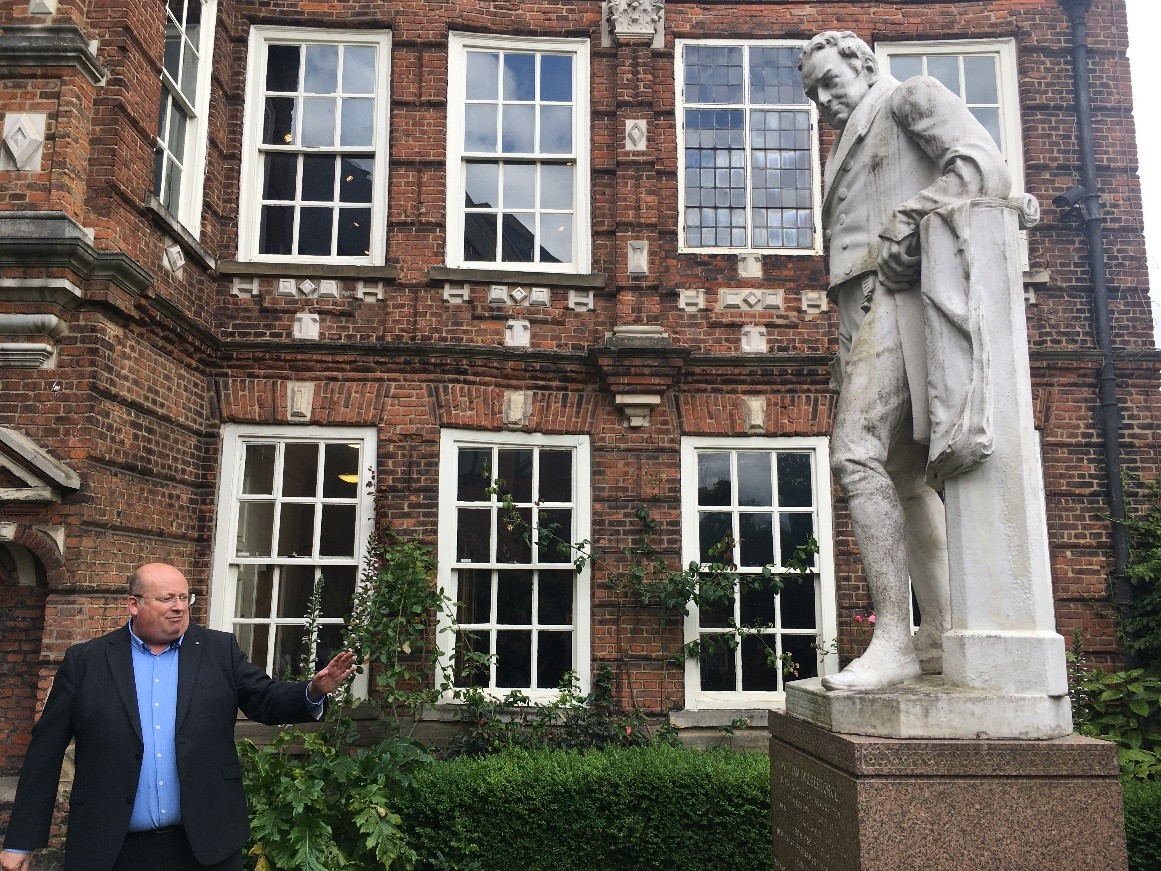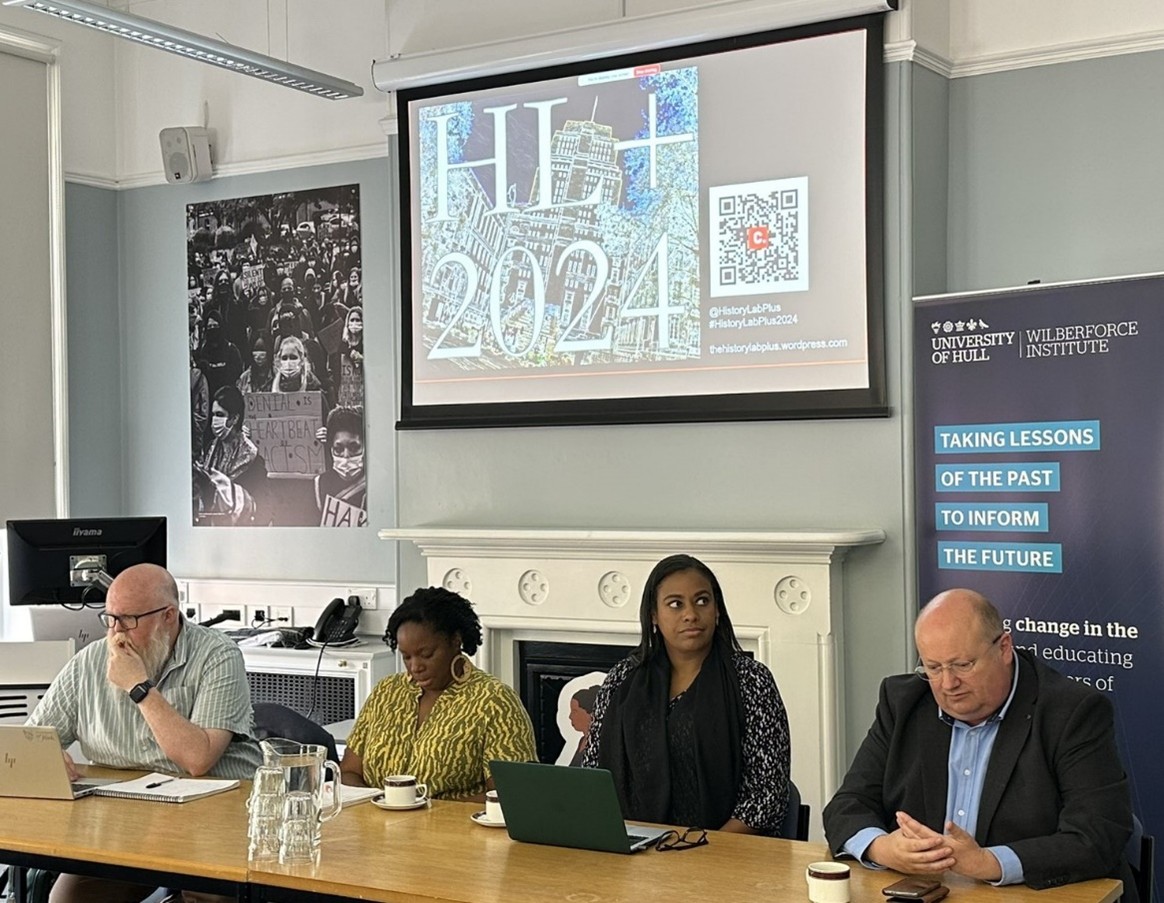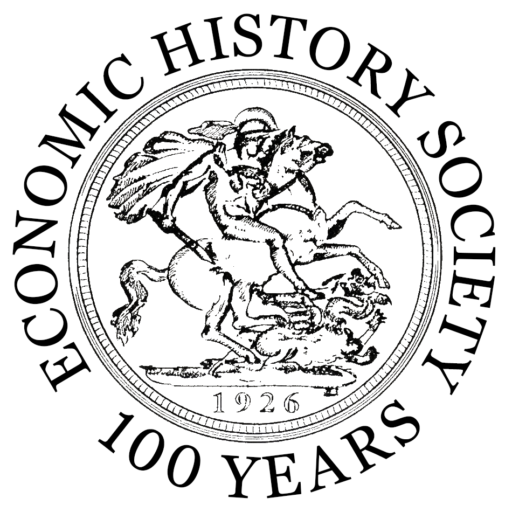Exploring histories of human, animal, and environmental exploitation at Hull’s Wilberforce Institute, with HistoryLab+
This post provides a brief overview of the 2024 HistoryLab+ conference, which was held in Hull on 25-26 July 2024 and funded partly by the Economic History Society through a grant from its Initiatives & Conference Fund.
—
HistoryLab+ is the UK’s national network for early-career historians, representing and supporting those that identify as early-career, from late-stage PhD candidates, lecturers and postdoctoral researchers (both university-based and independent scholars) to those in history-related professions, such as museums and galleries. Our annual conference is a central plank of the network’s activities, providing a space for collegiate and supportive discussions, to develop research collaborations and foster a community.
Setting up at the Wilberforce Institute for the Study of Slavery and Emancipation (WISE), we enjoyed two days of fascinating discussion and insight, with a programme of papers and activities spanning academia, cultural policy, and the heritage sector. Being situated in Hull’s historic Old Town was a contrast to our inaugural conference in 2023, which was held at our official base in London at the Institute of Historical Research, but a move up north ensured representation of our members outside of the capital. The venue, as well as the wider city, was also an ideal place to discuss the themes of the conference – histories of exploitation (interpreted broadly) – only metres away from abolitionist William Wilberforce’s former home (now the Wilberforce House Museum).
The conference this year provided a collegiate space for early-career and more established colleagues to discuss key issues of historical research, method and communication, as well as wider issues in the arts and humanities related to our key themes. In particular, it was difficult to avoid ongoing issues with cuts and closures in UK universities, including threats to prominent Black history modules and degree programmes. There was also plenty of reflection about the legacies of the Black Lives Matter movement and its influences within our sector and profession.
The first two panels focused on labour exploitation. Anna Baatz, of the Canal & River Trust, reflected on Britain’s waterways heritage, taking as her focus the transportation of coal and cotton during the long nineteenth century, as well as the legacies of these unique heritage sites through to the present. Anna’s talk was followed by a paper by Benedek Marton Vasy, focused on communist ideology and economy in central and eastern Europe before 1989. Samantha Hosein followed with an outline of her work on the treatment of mental illness in colonial Trinidad. The third panel began with Chris Townsend’s discussion of the economics of antislavery poetics after 1774, before moving on to Alex Dold’s exploration of representations of slavery and coloniality in Jamaica and Scotland in Diana Gabaldon’s Outlander novels. The final panel looked to the International Slavery Museum’s curatorial approach, particularly developments in the curation and display of objects related to the nineteenth-century abolitionist movement. Zofia Kufeldt brought our attention to a breakfast set gifted to abolitionist Thomas Clarkson for his eighty-first birthday. This was followed by Madelyn Walsh’s discussion of the well-known anonymous painting, Am I Not A Man and A Brother (c. 1800). The panel closed with Alexander Scott’s look at The Hunted Slaves (1861) by Richard Ansdell.
The conference also included a workshop, keynote discussion, and walking tour centred around the histories and legacies of colonialism and enslavement. For the workshop, four researchers each described one relevant, inspirational public-facing project:
- Bussing Outimmersive exhibition, by Shabina Aslam
- Uncomfortable York walking tours, by Anna Hill
- eCommemoration, by Felix Fuhg
- Life On Earthgallery, by Clare Brown
Participants were then challenged to curate selected visual and material culture from Leeds Museums and Galleries collections, devising potential plans for their display and thinking about the kinds of historical interpretation that might accompany them.
Before the final discussions of the conference kicked off, we were treated to a walking tour of Hull’s Old Town – led by WISE’s own Nicholas Evans – focusing in particular on sites with a link to Britain’s imperial past and to histories of colonial exploitation (and resistance to it). This included the Wilberforce Institute’s own Humanitarian Wall, Wilberforce House Museum, Trinity Market and Hull Minster.

The conference was capped with a collaborative keynote roundtable comprising early-career and more senior colleagues. Kesewa John, Danielle Terrazas Williams, David Stirrup, and Nicholas Evans together reflected on the (psychological, institutional, disciplinary, sectoral, cultural, national, and more) contexts in which researching and sharing histories of exploitative colonial practices and their legacies now happens, and the role of the early career historian in this picture.

The HistoryLab+ organising team would like to extend our thanks to all the day’s speakers and attendees, who ensured our discussions were particularly well-informed, thoughtful and lively, as well as our sponsors at WISE, the Institute of Historical Research, Society for the Study of Labour History and Economic History Society.
To contact the authors:
Michael Reeve
michael.reeve@open.ac.uk
Sarah Wride, Lauren Theweneti, Amelia Clegg, and Duncan Hamilton also contributed to this conference and blog post.

